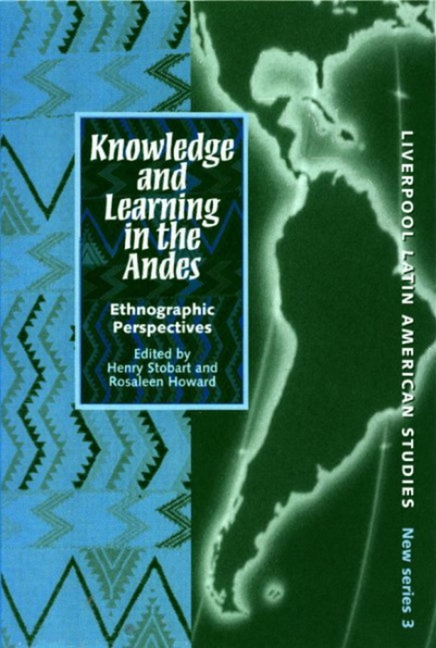Book contents
- Frontmatter
- Contents
- List of illustrations
- List of contributors
- Introduction
- Part I: Multiple Media in the Creation and Transmission of Knowledge
- Part II: Knowledge, Power and Authority
- Part III: Conflicting Paradigms of Knowledge
- 7 Why Nazario is Leaving School: Community Perspectives on Formal Schooling in Rural Bolivia
- 8 Local Knowledge in Health: The Case of Andean Midwifery
- 9 Learning and Re-Learning How to Plant: The Impact of New Crops on the Spread and Control of New Agricultural Knowledge in the Ecuadorian Andes
- Index
9 - Learning and Re-Learning How to Plant: The Impact of New Crops on the Spread and Control of New Agricultural Knowledge in the Ecuadorian Andes
from Part III: Conflicting Paradigms of Knowledge
- Frontmatter
- Contents
- List of illustrations
- List of contributors
- Introduction
- Part I: Multiple Media in the Creation and Transmission of Knowledge
- Part II: Knowledge, Power and Authority
- Part III: Conflicting Paradigms of Knowledge
- 7 Why Nazario is Leaving School: Community Perspectives on Formal Schooling in Rural Bolivia
- 8 Local Knowledge in Health: The Case of Andean Midwifery
- 9 Learning and Re-Learning How to Plant: The Impact of New Crops on the Spread and Control of New Agricultural Knowledge in the Ecuadorian Andes
- Index
Summary
This chapter analyses the process of learning and the possession and distribution of agricultural knowledge in a context of economic and political change. This will be done by investigating the introduction of cash crops in Sucre, a peasant community in the upper levels of the Patate River valley in the Central Ecuadorian Andes, where I carried out anthropological fieldwork in 1989–90 and 1996.
As Barbara Bradby indicates elsewhere in this volume, most of the literature on agricultural knowledge in the Andes has been written by people working on environmental sustainability and/or on agricultural development. This work has questioned the top-down model of earlier development work. It is concerned with examining the interaction between the belief systems and approaches to knowledge of local farmers and scientists in order to make development projects more effective and sustainable (see, for example, Bebbington 1990; Long and Long [eds.] 1992; de Boef et al. 1993; and Apffel-Marglin and Marglin [eds.] 1996). In spite of the emphasis these works place on the value on local knowledge, little attention is paid to the processes by which ‘new’ agricultural knowledge is evaluated, accepted or rejected in the absence of development workers. As we will see towards the end of this chapter, these processes have an effect on the acceptance or rejection of ‘new’ knowledge brought in by outsiders.
In contrast, researchers on ritual and religion in the Andes have long been concerned with the processes and politics of knowing. This includes looking at the social implications and dynamics of possessing, transmitting and gaining knowledge (see, for example, Allen 1988; Arnold 1990, 1992; Bastien 1978; Bouysse-Cassagne and Harris 1987; Harris 1986; Radcliffe 1990; Rasnake 1996). These studies reveal that in Andean cultures, knowledge and learning are shaped through people's interactions with the world around them – a world in which one can learn not only from other people, but from the mountains, streams, animals, saints and supernatural beings. Knowledge is embedded in the landscape and in the things created by people, such as houses, weavings and music.
- Type
- Chapter
- Information
- Knowledge and Learning in the AndesEthnographic Perspectives, pp. 194 - 206Publisher: Liverpool University PressPrint publication year: 2002



